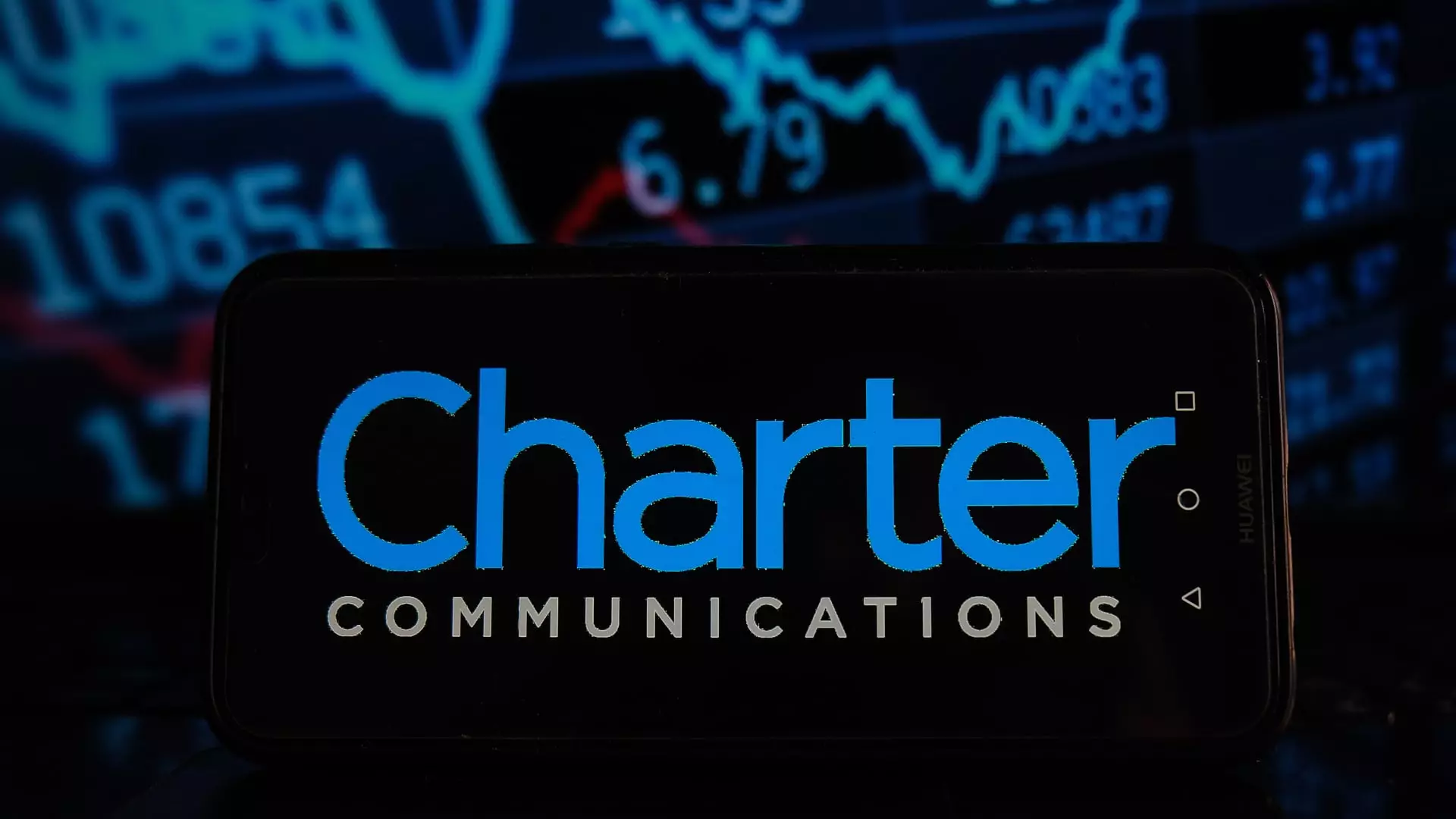In a bold move that reverberates throughout the telecommunications landscape, Charter Communications and Cox Communications—two titans in the U.S. cable industry—have announced their intention to merge. With an enterprise value pegged at a staggering $34.5 billion, this merger symbolizes more than just a corporate alignment; it embodies the shifting tides of an industry grappling with fierce competition and mounting challenges. While proponents herald this merger as a strategic necessity, I contend that the implications of such a union may exacerbate existing issues, undermining competition and consumer choice in an already volatile market.
Cash and Control: The Numbers Behind the Deal
Charter’s valuation of Cox, involving approximately $21.9 billion in equity coupled with $12.6 billion in net debt, raises eyebrows not just because of the sheer scale but also due to the precarious financial landscape that both companies inhabit. This merger, expected to close concurrently with Charter’s acquisition of Liberty Broadband, reveals a concerning trend toward consolidation, one which I believe threatens the very essence of market competition.
How is it that two large entities—already blessed with vast infrastructures—believe merging will fortify their standing rather than stifle competition? While Charter’s stock saw an 8% premarket rise following the announcement, one can’t help but wonder if the stock market’s enthusiasm is misguided. As an armchair critic of corporate amalgamations, I find it troubling that companies can eliminate competition by absorbing one another rather than innovating to meet consumer demands in a rapidly evolving digital age.
The Competition Conundrum: Challenging the Status Quo
The broadband market is not merely a battleground for cable giants; it has transformed into a dynamic playground where consumers expect seamless connectivity without the burdens of outdated cable bundles. In this context, the major players like Charter are not only losing traditional subscribers rapidly but also find themselves facing telltale signs of impending doom, evidenced by the reported losses of 60,000 broadband customers in one quarter alone. It appears that instead of addressing these pressing issues directly through innovation or improved service offerings, Charter is opting for a shortcut—a merger that may lull them into a false sense of security.
The hearty competition posed by wireless providers and the expanding realm of 5G technology highlights how inadequate traditional cable offerings have become. As customers seek alternatives that cater to their individual needs and lifestyles, cable companies’ preoccupation with merger-driven growth feels alarmingly disconnected from consumer preferences.
A Corporate Power Play: Who Benefits?
This merger is poised to leave both Charter and Cox embedded in the seat of power, but at what cost? The monopoly-like situation that may ensue could stifle innovation and lead to higher prices for consumers. Charter has already attempted a strategic pivot toward mobile lines, now offering 10.5 million mobile lines to offset losses. But merely bundling services does not equate to real value—especially when customers are often left with undesirable options masked as improvements.
Once the merger is finalized, the diluted influence of Cox Enterprises as a shareholder leaves many questions unanswered: Will they prioritize corporate profits over their customer base? The merging companies plan to adopt the Cox Communications brand while continuing to operate independently from their original goals and missions. As a consumer and an observer, I fear that the focus may shift away from enhancing customer experience toward fulfilling corporate agendas.
What Lies Ahead for Consumers?
As the merger unfolds, what will become of the millions of customers tied to these brands? The announcement indicates that Charter CEO Chris Winfrey will continue to lead the merged entity, which poses a legitimate concern regarding whether consumer interests will take precedence under his direction. The customer experience remains paramount, yet centralized control often leads to standardized, uninspired service models devoid of unique solutions for diverse consumer needs.
The anticipated $500 million in annual cost synergies within three years may sound appealing on paper, but history has shown that such projections often lead to workforce reductions and service cutbacks—directly impacting consumers who depend on the very services these giants are supposed to provide effectively. Merger euphoria may very well lead to a dystopian reality further down the line, where subscribers are left paying for less while enduring the frustrations of compromised service quality.
In this rapidly changing market environment, the very fabric of consumer rights, choices, and service quality hangs in the balance, resting on the outcome of a deal that raises more questions than it answers. The impending Charter-Cox marriage may be celebrated in corporate boardrooms, but its far-reaching implications could spell disaster for everyday consumers trying to navigate a landscape that is increasingly complex and, ironically, devoid of true competition.


Leave a Reply